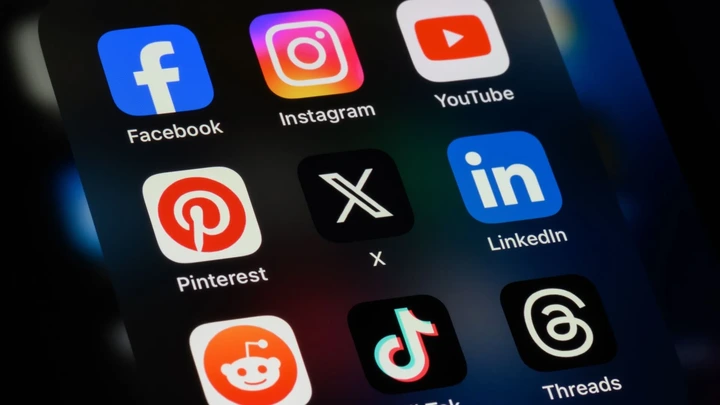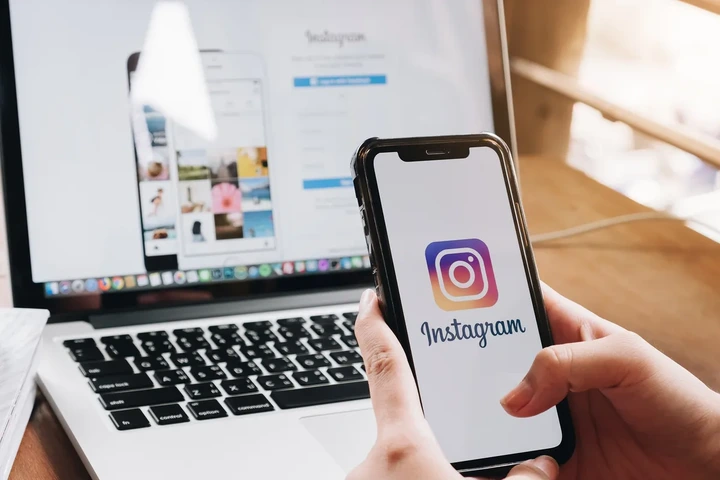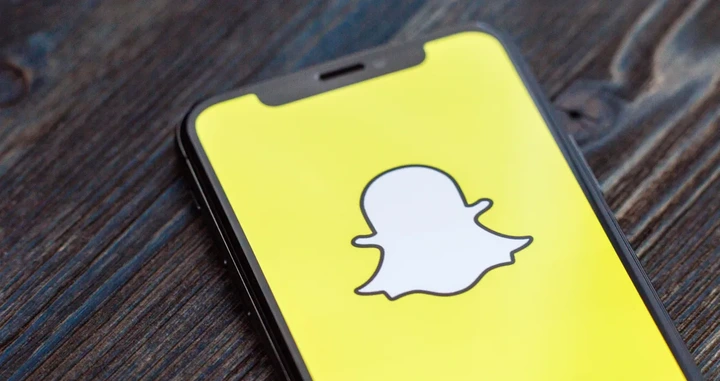Is TikTok more intrusive in its data collection compared to other social media platforms?

View pictures in App save up to 80% data.
As the deadline for ByteDance to either sell TikTok or face a ban in the United States approaches, there has been a surge of discussion regarding the reasons behind the potential ban.
The debate surrounding TikTok often centers on its data collection practices, which many argue is a primary reason for potentially banning the app. Critics worry that the information gathered by TikTok could be exploited for malicious intents.
While a ban might mean you would need to use one of the best VPNs to access the video-sharing platform, the data discussion has piqued my interest: is TikTok actually the worst social media platform for harvesting user data?

View pictures in App save up to 80% data.
Social media platforms collect a variety of data from their users, including: 1. **Personal Information**: This includes name, email address, phone number, date of birth, and profile pictures. 2. **User-generated Content**: Posts, comments, likes, shares, and any multimedia content shared by users. 3. **Interaction Data**: Information on how users interact with content, including engagement metrics such as likes, shares, and comments. 4. **Location Data**: Geolocation information based on user check-ins, tagged locations, and device GPS data. 5. **Device Information**: Data about the devices used to access the platforms, including device type, operating system, browser type, and IP address. 6. **Usage Patterns**: Information on the frequency and duration of use, including time spent on the platform and the types of content consumed. 7. **Connections**: Data about friends, followers, and other connections made on the platform. 8. **Cookies and Tracking**: Cookies and similar technologies that track user behavior across the platform and sometimes across other websites. 9. **Surveys and Feedback**: Information gathered from user surveys, polls, and feedback forms. 10. **Third-party Data**: Information obtained from other sources, including data brokers or partner applications that may interact with the social media platform. This data can be used for various purposes, including targeted advertising, improving user experience, and enhancing platform security.
Social media platforms rely on user information to operate effectively. Each time you engage with any social media service, it collects data regarding your usage.
Additionally, every platform mandates that users submit some form of personal information during the registration process. This is essential for confirming their identity as genuine users and ensuring that they comply with the platform's criteria, such as age restrictions.
Information gathered from social media platforms
Typically, all social media platforms tend to collect similar types of information about you, such as:
- Your personal information you use to sign up, e.g. email address, phone number, full name, date of birth and any other information like your profile picture and/or username. This may also include your location, with some social media sites able to access your precise location data via GPS coordinates.
- Your financial information, if you use the platform to buy goods or make donations.
- The content you interact with, whether this is through liking, sharing, commenting, reposting, etc. They will also collect information on how long you spend interacting with content.
- The content you post, including photos, videos or text posts.
- The content you send to others through messages, whether this is private messages or sharing posts.
- Your device information, e.g. the model and make, your IP address, your operating system, your preferred language, any information collected from cookies.
- Information about your contacts, e.g. your address book.
Currently, certain types of information, such as specific location details and your address book, require your consent to be accessed by the social media platform. On the other hand, the majority of the other data is gathered automatically by the site during your usage.
The goal of gathering this information is to tailor your social media feed to better represent your interests as a user. For instance, if you mainly utilize platform X to create and share content related to men's fashion, you could feel annoyed if your feed is inundated with posts about sports or television. This data plays a crucial role in customizing your experience, whether it’s recommending content creators you may want to follow or enabling features like dark mode.
TikTok sparked privacy concerns in 2021 when it updated its privacy policy to include the collection of biometric data like "faceprints and voiceprints", however Instagram, Facebook, Snapchat and X all collect biometric data. That may include both faceprints or voiceprints. The uses for it range from augmented reality filters on pictures, videos or voice filters, or for verification or safety purposes.
How long do social media platforms retain my data?
If you choose to undertake a complete social media detox and delete your account on your favorite platforms, you might wonder how long your data will remain stored by those services after the deletion. Typically, many social media platforms retain user data for a certain period even after an account is deleted, often for reasons related to legal obligations or data recovery. This duration can vary from one platform to another, ranging from a few days to several months, or in some cases, even longer. It's a good idea to check the specific privacy policy and data retention practices of each platform to get a clearer understanding of how they handle deleted accounts and associated data.
The answer varies. Some platforms retain user data for far longer than others. In fact, in September 2024, research by data removal service Incogni found that numerous social media platforms (including Facebook, Instagram, YouTube, Facebook Messenger, and Discord) all kept user data for up to 180 days after they'd deleted their accounts. Snapchat holds on to user's data for up to 60 days, while Tumblr and TikTok only retain it for up to 30 days.
This implies that, for as long as six months, social media hackers may still access your personal information, even if you have removed your account.

View pictures in App save up to 80% data.
How do social media platforms utilize my data?
Your information is mainly utilized to customize your social media experience and to inform the algorithm that determines what content appears on your feed.
It could also be utilized to ensure that certain features, such as selfie filters or voice modulators, function correctly. Nevertheless, some businesses have started to leverage user data for different intentions.
Both Meta (owner of Facebook and Instagram) and X have come under fire recently for using public posts to train their respective AI models. So, not only have people had their information scraped but their way of being has been taken and become an additive part of another entity.
Although users can choose to opt out of this, the problem lies in the fact that everyone was initially opted in, which means that the training and data collection processes have largely already occurred.
Are TikTok's data practices more concerning than those of other social media platforms?
TikTok is certainly not the only platform engaging in extensive data collection. In some respects, one might even claim that its data privacy measures are superior to those of Meta or X. For instance, TikTok has refrained from using user-generated content to train its generative AI models. However, concerns around TikTok's data harvesting have been framed as a national security issue. If similar allegations were directed at Meta or X, it would be challenging to identify any significant differences in their practices.
While it is still not confirmed that the US will ban TikTok, the reality is looming ever-closer. US TikTok users are now considering whether they'll need a TikTok VPN to access the site, or turn elsewhere for their short-form video hits instead. Not ideal but it would certainly set an interesting precedent for other social media sites.

View pictures in App save up to 80% data.
Certainly, the location of a social media company's headquarters plays a crucial role in national security considerations. Up to now, there has been little focus on Chinese-owned applications such as Shein and Temu, which collect comparable amounts of user information. However, they may soon find themselves under scrutiny as well.
Interestingly, it's worth mentioning that Meta, the parent company of TikTok rivals Instagram and Facebook, allocated $7.6 million for lobbying efforts in Congress during the first quarter of 2024.
According to the Lobbying Report submitted by Meta, the lobbying was done on matters of "Homeland Security", with specific focus on "discussions regarding cybersecurity, data security, encryption, platform integrity, election integrity, content policy, and terrorism” and "voter suppression/interference, political ads and misinformation policies". These are the same factors that have been used to argue for the banning of TikTok.
Regardless of the outcome of the TikTok ban in the US, it's evident that every social media platform collects your personal information. If you're seeking to have your data removed, the process could be more time-consuming than anticipated. It's wise to take steps to safeguard your privacy before your government intervenes on your behalf.